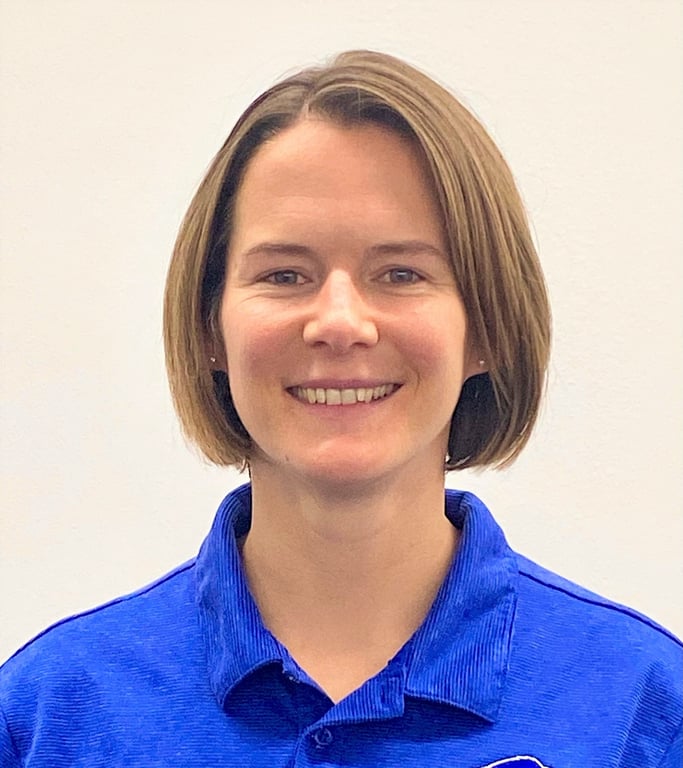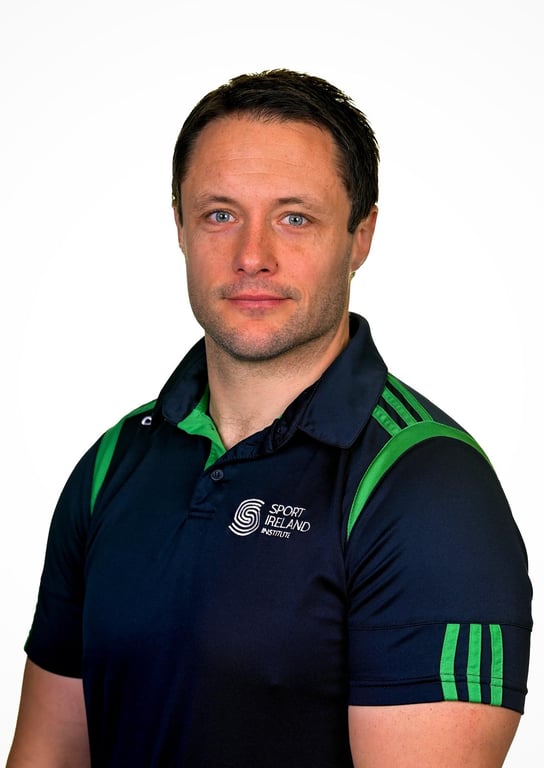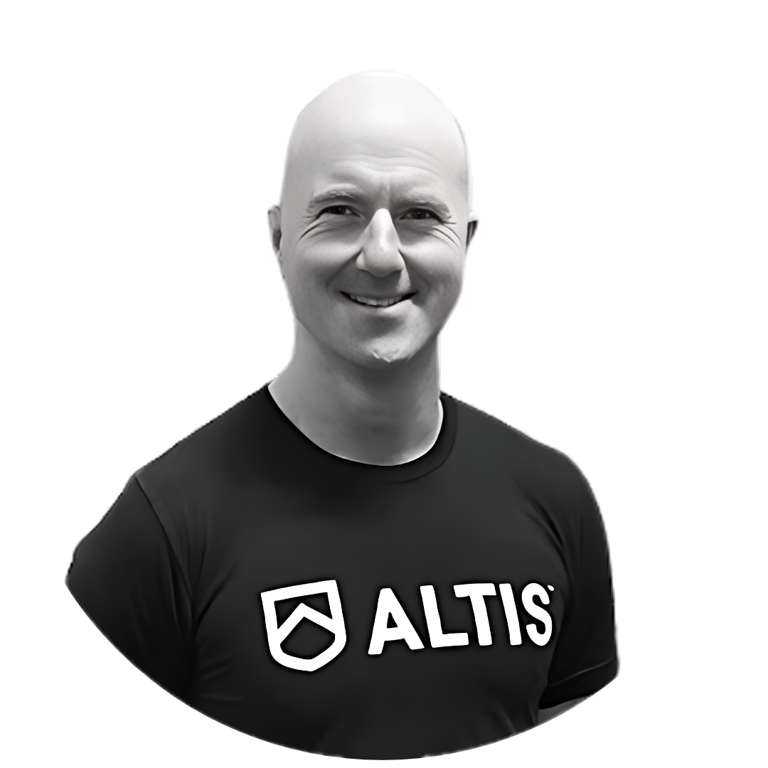About
The course equips students with an advanced understanding of strength and conditioning and the problem-solving abilities to employ this understanding in real-world coaching contexts. Through a blend of practical and theoretical learning, students are empowered to address complex performance challenges and make informed coaching decisions in high-pressure environments. This program is a timely and innovative response to the evolving demands of the sports and fitness industry, providing students with the tools to foster high-performance outcomes and drive changes in athletic training. The curriculum is designed to enhance critical thinking, creativity, and interpersonal skills, ensuring that graduates are not only capable of improving athletic performance but also of leading and inspiring teams in diverse and dynamic settings. Throughout the course, students will engage in a holistic learning experience that includes individual mentoring, formative feedback, and a carefully scaffolded curriculum, enabling them to synthesize knowledge across disciplines and apply it to real-world coaching scenarios. This comprehensive approach ensures that graduates are prepared to be impactful leaders and innovators in the field of strength and conditioning.
Target Audience
- Ages 19-30, 31-65, 65+
Target Group
The Master of Science in Strength Conditioning and Coaching Practice is designed for professionals and aspiring practitioners in the fields of sports science, physical education, and athletic coaching. This program is ideal for individuals who wish to deepen their expertise in strength and conditioning, with a focus on applying advanced techniques and evidence-based practices to optimize athletic performance. The course targets coaches, trainers, and sports professionals seeking to enhance their coaching methodologies and leadership skills. The target group should be prepared to pursue substantial academic studies fitting to the MQF/EQF 7 level.
Mode of attendance
Online
Structure of the programme - Please note that this structure may be subject to change based on faculty expertise and evolving academic best practices. This flexibility ensures we can provide the most up-to-date and effective learning experience for our students.The Master of Science in Strength, Conditioning, and Coaching Practice combines asynchronous components (lecture videos, readings, and assignments) and synchronous meetings attended by students and a teacher during a video call. Asynchronous components support the schedule of students from diverse work-life situations, and synchronous meetings provide accountability and motivation for students. The training blends dynamic, community-oriented live video sessions with self-paced, on-demand content. Educators gain invaluable tools, form lasting relationships, and develop leadership skills that propel their personal and professional growth for years to come. Modules are offered continuously on a publicly advertised schedule consisting of cohort sequences designed to accommodate adult students at different paces. Although there are few formal prerequisites identified throughout the programme, enrolment in courses depends on advertisement from Woolf faculty and staff.
Grading System
Scale: 0-100 points
Components: 60% of the mark derives from the average of the assignments, and 40% of the mark derives from the cumulative examination
Passing requirement: minimum of 60% overall
Dates of Next Intake
Rolling admission
Pass rates
2023 pass rates will be publicised in the next cycle, contingent upon ensuring sufficient student data for anonymization.
Identity Malta’s VISA requirement for third country nationals: https://www.identitymalta.com/unit/central-visa-unit/
Passing requirement: minimum of 60% overall
Dates of Next Intake
Rolling admission
Pass rates
2023 pass rates will be publicised in the next cycle, contingent upon ensuring sufficient student data for anonymization. Identity Malta’s VISA requirement for third country nationals: https://www.identitymalta.com/unit/central-visa-unit/
How students have found success through Woolf
Course Structure
About
This module explores the foundational concepts of human movement through applied biomechanics, functional anatomy, and core physical principles as they relate to athletic performance. Delivered through a fully online mode, students engage with video demonstrations, structured coaching simulations, and reflective analysis tasks to explore the complex relationships between internal movement mechanisms and external environmental constraints. Through real-world coaching observations or simulations, students will evaluate movement patterns, adapt technical models, and apply critical problem-solving approaches in their own professional context. The module prepares students to supervise movement training, contribute to athlete development planning, and integrate human movement principles into team or organisational strategies.
Teachers





Intended learning outcomes
- Critically evaluate the biomechanical and anatomical principles underlying athletic movement and performance.
- Analyze how intrinsic and extrinsic constraints influence human movement in sport and exercise contexts.
- Synthesize evidence-based technical models for movement instruction using interdisciplinary perspectives.
- Implement strategies to modify and improve technical movement skills through virtual coaching simulations or guided practical tasks.
- Design and adapt movement-based coaching drills suitable for diverse athletes or performance contexts.
- Apply biomechanical and anatomical principles to assess athletic movement through video analysis or remote observation.
- Communicate movement assessment outcomes effectively to athletes or stakeholders using digital media or visual tools.
- Lead and supervise athlete movement development using informed movement strategies grounded in applied biomechanics.
- Manage and evaluate movement-focused training interventions within a remote coaching environment.
- Contribute to interdisciplinary coaching plans that integrate anatomical and movement knowledge within a team or organisational setting.
About
This module examines the science and art of coaching as a dynamic and context-sensitive process central to athlete development. Emphasizing leadership, interpersonal communication, and evidence-based skill acquisition strategies, students explore how coaching influences performance across diverse contexts. Delivered entirely online, students engage with virtual case studies, video-based athlete observations, and interactive coaching design tools to develop adaptive strategies. This module also facilitates collaborative decision-making and professional reflection, equipping students to lead within multidisciplinary teams and manage coaching environments to improve athletic outcomes.
Teachers





Intended learning outcomes
- Integrate leadership, communication, and interpersonal theories to inform the design of contextually relevant coaching practices.
- Critically examine the principles of skill acquisition and their application in the development of coaching strategies.
- Evaluate the coaching process and its outcomes across varying performance levels and learning environments.
- Adapt coaching methods to suit individual athlete needs based on personality, skill level, and learning preferences using online tools and athlete profiles.
- Design and justify intervention strategies for movement performance using skill development hierarchies and virtual simulation tasks.
- Facilitate effective coach-athlete communication and relationship-building using digital communication strategies and reflective feedback models.
- Collaborate in virtual multidisciplinary teams to analyse coaching problems and co-develop evidence-based solutions.
- Support athlete development by implementing tailored coaching plans and digital performance tracking.
- Lead and manage coaching interventions within multidisciplinary performance environments using virtual collaboration and planning tools.
- Contribute strategically to coaching decisions that enhance team or individual performance outcomes through online collaboration and feedback mechanisms.
About
This module explores the science and application of strength and power training to enhance athletic performance. Students will examine force development in relation to task constraints and athlete needs, with a focus on physiological adaptations, programming strategies, and individual response variability. Delivered fully online, the course uses video analysis, interactive exercise design tools, and real-world coaching simulations to build students’ capabilities in designing and managing effective training programs. Emphasis is placed on making evidence-based coaching decisions, collaborating with virtual coaching networks, and refining practice through continuous feedback and reflection.
Teachers





Intended learning outcomes
- Evaluate the relationship between force generation, task constraints, and performance enhancement in sport-specific contexts.
- Synthesise evidence-based knowledge to propose alternative programming routes for diverse athlete needs and training limitations.
- Analyse the physiological mechanisms of strength and power development and their implications for training adaptation.
- Implement and adjust evidence-informed strength training strategies through virtual athlete monitoring and simulated decision-making exercises.
- Create intervention plans for strength and power development across a range of physiological and contextual training conditions.
- Design targeted training programs to improve strength and power using online planning platforms and scenario-based case studies.
- Use digital tools to track, interpret, and report on training outcomes to support athlete progress.
- Collaborate virtually with other coaches and allied professionals to co-develop strength training strategies aligned with performance goals.
- Manage the design and review of strength development programs, ensuring alignment with both performance targets and individual needs.
- Supervise and guide athletes in applying strength and power principles within sport-specific training contexts using remote coaching tools.
About
This module focuses on the development and transfer of strength and power into dynamic athletic movements such as sprinting, agility, and change of direction (COD). Students will explore the biomechanical, neurological, and contextual factors that influence locomotor performance in sports. Delivered fully online, the module uses movement analysis platforms, technical model breakdowns, and virtual training design workshops to enable students to develop and critique individualized programs. Emphasis is placed on data-informed coaching, interdisciplinary collaboration, and context-relevant decision-making for performance enhancement.
Teachers





Intended learning outcomes
- Evaluate the effect of external constraints (environmental, task-specific, or individual) on performance outcomes in high-speed and agile movements.
- Analyse biomechanical and neuromuscular principles influencing speed, agility, and change of direction in multi-directional movement tasks.
- Critically appraise various training models for their effectiveness in developing sport-specific locomotive capacity.
- Integrate strength and power development principles into dynamic movement strategies through virtual simulations and training tasks.
- Adapt locomotion-based interventions based on individual assessments and performance data gathered through online coaching tools.
- Apply appropriate biomechanical models and video analysis techniques to assess and refine locomotive performance in a variety of sports contexts.
- Design context-specific training programs targeting improvements in speed, agility, and COD using digital planning tools and athlete profiling platforms.
- Contribute to multidisciplinary strategies to improve complex movement performance by integrating perspectives from strength & conditioning, biomechanics, and skill acquisition through virtual discussions and shared platforms.
- Guide and monitor athlete performance in speed and agility training scenarios using online feedback and remote assessment platforms.
- Organise and manage agility and multi-directional training plans with sport-specific goals in collaboration with remote coaching networks.
About
This module equips students with advanced knowledge and applied skills to strategically design, implement, and adapt planning and periodisation frameworks that optimize performance and manage fatigue across training and competition cycles. Students will engage in the creation and critique of training plans based on macro, meso, and micro cycles using digital platforms for remote athlete monitoring, planning simulations, and collaborative coaching environments. Through a leadership-focused lens, the course promotes critical decision-making and stress management to ensure athlete development and well-being.
Teachers
Intended learning outcomes
- Evaluate athlete monitoring data to inform periodisation strategies and training load decisions.
- Critically appraise periodisation models for their application in different sports, performance contexts, and athlete development stages.
- Synthesise short-term (micro), medium-term (meso), and long-term (macro) planning concepts to construct adaptable training frameworks.
- Lead planning discussions and collaborative decision-making using virtual coaching platforms and athlete management systems.
- Implement strategies to manage training stress and recovery through digitally monitored performance indicators.
- Adapt training cycles based on athlete data, contextual challenges, and emerging evidence in periodisation science.
- Develop periodised training plans using online tools that align with performance goals, competition schedules, and athlete readiness.
- Contribute as a lead practitioner to the design and ongoing refinement of high-performance training calendars using interdisciplinary input and evidence-based decision-making.
- Manage and adjust training plans in real time using digital monitoring and communication tools in collaboration with sport science teams.
- Guide and motivate athletes to commit to periodisation-based programs that promote long-term performance improvements.
About
This module develops students’ advanced understanding of metabolic conditioning and its application in field-based, sport-specific contexts. It explores the physiological principles of energy system contribution across various exercise intensities, durations, and sport formats—especially intermittent team sports. Emphasizing accessible, real-world scenarios, students will learn to design and implement metabolic training programs using remote data collection, virtual simulations, and collaborative analysis of movement demands and physiological responses. The module prepares students to lead performance planning that optimizes energy system development using non-laboratory tools and interdisciplinary coaching strategies.
Teachers
Intended learning outcomes
- Design evidence-based conditioning strategies to enhance endurance and energy system efficiency in intermittent performance contexts.
- Examine the contribution of energy systems and metabolic processes during various phases of performance across different sports.
- Demonstrate in-depth understanding of the physiological mechanisms that underpin cardiovascular and metabolic conditioning.
- Adapt conditioning strategies to match sport-specific demands, using time-motion data and individualized feedback.
- Apply field-based testing techniques and movement analyses using digital tools to determine energy system demands.
- Integrate performance data from multiple sources to optimize energy system usage across diverse training environments.
- Facilitate online and in-person athlete training programs that strengthen cardio-respiratory performance through tailored programming.
- Collaborate effectively with sport scientists and coaching professionals to co-design, monitor, and adjust energy system development plans using remote assessment tools.
- Guide athletes in achieving metabolic conditioning targets aligned with competition goals through individualized, context-aware programs.
- Lead initiatives to develop robust, field-oriented testing protocols that are adaptable for various team and individual sport settings.
About
This module examines the critical frameworks, principles, and challenges of long-term athlete development (LTAD), with a focus on youth and pediatric populations. It equips students with the knowledge, skills, and interdisciplinary perspective necessary to implement developmentally appropriate and evidence-informed coaching strategies. The course emphasizes understanding biological maturation, bio-banding, psychosocial development, and planning aligned with long-term performance goals. Students will design LTAD programs through real-world athlete case simulations and collaborative planning tasks in a fully digital environment.
Teachers
Intended learning outcomes
- Critically analyze the physiological, biological, and psychosocial factors influencing long-term athlete development.
- Demonstrate comprehensive understanding of LTAD models and their application in youth sports and lifelong physical activity promotion.
- Evaluate the implications of biological maturation, bio-banding, and youth-specific performance trends on coaching decisions.
- Design long-term coaching plans that integrate biological, psychosocial, and contextual considerations for pediatric athletes.
- Adapt coaching interventions in response to observed disparities between short-term outcomes and long-term development objectives.
- Implement maturation-appropriate training strategies using virtual athlete profiling and developmental tracking tools.
- Utilize athlete case data to inform decisions on training loads, bio-banding, and progression timelines.
- Organize youth training sessions and development pathways that align with international LTAD principles and ethical coaching practice.
- Supervise individualized athlete trajectories through digital tools that support long-term planning and developmental monitoring.
- Collaborate with sport scientists, educators, and allied professionals to design and review long-term performance strategies in multidisciplinary youth sport contexts.
About
This module develops advanced competencies in research design and critical inquiry within the context of strength and conditioning. Students will explore and apply both quantitative and qualitative methodologies to real-world coaching challenges. Emphasizing evidence-based practice, ethical research conduct, and methodological rigor, the module prepares learners to integrate research into high-performance settings. Learners will design original research studies, critique existing literature, and use digital tools for data collection, analysis, and dissemination in sport-specific environments. The module is designed for online delivery using digital labs, peer collaboration, and virtual mentoring.
Teachers
Intended learning outcomes
- Synthesize existing research literature to inform evidence-based interventions in coaching.
- Critically evaluate key research methodologies applicable to strength and conditioning practices.
- Demonstrate understanding of ethical and contextual considerations in conducting research involving human participants in sport settings.
- Develop informed recommendations based on research evidence to enhance coaching practice.
- Apply digital tools for data collection, processing, and analysis relevant to performance-based environments.
- Design research projects addressing applied coaching and conditioning issues using appropriate qualitative or quantitative methods.
- Interpret and report research findings in a format suitable for academic and professional dissemination.
- Lead research-driven initiatives aimed at improving strength training environments and practices.
- Integrate empirical research findings into planning and decision-making in high-performance coaching.
- Engage in multidisciplinary collaboration to address applied coaching problems and communicate research insights effectively.
About
This capstone module enables students to integrate and apply the research, analytical, and practical competencies developed throughout their program. Students will independently design and conduct an applied case study grounded in contemporary challenges in coaching and strength & conditioning. Emphasizing originality, methodological rigour, and relevance to real-world practice, the project will showcase the student’s ability to evaluate research methods, apply knowledge of physiological systems, and critically engage with evidence-based practices.
The Research Project will include the following:
Academic Poster [1000 words equivalent]: Design, implement and conclude a short research project designed to develop new knowledge which is useful for your practice.
Disseminate this research via an academic poster which outlines the work via the following sections:
IntroductionMethodResultsDiscussionConclusionsReferences
Applied Case Study Thesis [8-10,000 words]
Outline your work with an athlete over a 12-week period with special focus on how your previous research and academic poster conclusions have impacted your practice. You should outline:
Your decision-making process to map the situation and set priorities [Introduction]Your initial experimental approach to the problem and where the closed feedback loops exist to monitor the process [Methods]The outcome of your training process [Results]Conclusions, reflections and lessons learned for future training and development [Discussion and Conclusion]
Teachers
Intended learning outcomes
- Demonstrate an advanced understanding of physiological systems as they relate to training and adaptation.
- Critically compare and integrate evidence-based practices to formulate high-impact coaching strategies.
- Evaluate research methodologies and their suitability for complex coaching and conditioning contexts.
- Design and execute a research project that synthesizes theoretical and practical elements of training design.
- Produce a coherent, academically rigorous, and professionally formatted research thesis.
- Collect, manage, and analyze data using appropriate digital tools and ethical research practices.
- Construct and present original research that offers viable solutions to real-world problems in sport performance.
- Engage with stakeholders to implement, communicate, and evaluate evidence-based interventions.
- Demonstrate autonomy and leadership in problem solving, ethical decision-making, and reflective research practice.
- Contribute new knowledge to the field of strength and conditioning through applied research.
- Lead and coordinate research activities with coaching teams in varied performance contexts.
Entry Requirements
Application Process
Submit initial Application
Complete the online application form with your personal information
Documentation Review
Submit required transcripts, certificates, and supporting documents
Assessment
Note: Not required by all colleges.
For colleges that include this step, your application will be evaluated against specific program requirements.
Interview
Note: Not all colleges require an interview.
Some colleges may invite selected candidates for an interview as part of their admissions process.
Decision
Receive an admission decision
Enrollment
Complete registration and prepare to begin your studies
.avif)










